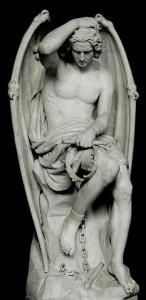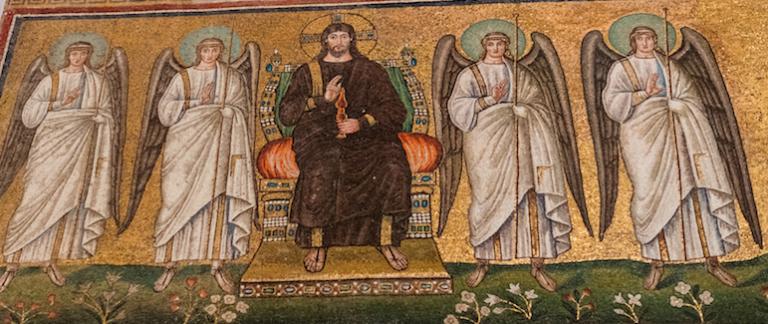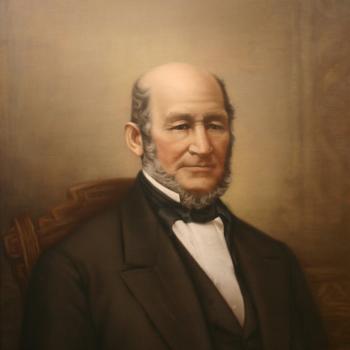 For six seasons, TV fans enjoyed the guilty pleasure of rooting for the good-looking, affable detective hero of the hit show “Lucifer.” Why guilty? Because the hero, Lucifer Morningstar, was actually the devil, that powerful angel tossed from heaven because—according to show notes—he was bored of being Lord of Hell. Friends talking about the show would joke, “It feels a little weird rooting for the devil!”
For six seasons, TV fans enjoyed the guilty pleasure of rooting for the good-looking, affable detective hero of the hit show “Lucifer.” Why guilty? Because the hero, Lucifer Morningstar, was actually the devil, that powerful angel tossed from heaven because—according to show notes—he was bored of being Lord of Hell. Friends talking about the show would joke, “It feels a little weird rooting for the devil!”
Why Lucifer?
TV Lucifer is cleverly named. Writers seem to have consulted the Bible. In Isaiah 14:12 we read,
“How you have fallen from heaven, morning star, son of the dawn! You have been cast down to the earth, you who once laid low the nations!”

The name Lucifer comes from the Latin for “morning star” (Hebew halel), which in Isaiah’s context was given to the king of Babylon, a hated oppressor of Israel. The prophet poetically described him as a fallen angel, one at the top of his game but whose ambition and evil caused him to tumble into judgment.
Another foreign king was also described as an angel (cherub) expelled from heaven, the king of Tyre in Ezekiel 28. Prophecy was often interpreted locally to the immediate subject and more broadly to the future or with spiritual applications. Ezekiel’s descriptions of the “guardian cherub” (28:16ff) obviously do not apply directly to the human king, leading scholars to interpret the passage as a picture of Lucifer’s expulsion from heaven.

Over the centuries, the Latin Lucifer stuck and was used in writings such as Dante’s Divine Comedy, or Milton’s Paradise Lost.
Lucifer and Satan
In Luke 10:18, Jesus seems to make a reference to the passages in Isaiah and Ezekiel. When his disciples returned from their missionary journey rejoicing that they had been able to cast out demons, he replied, “I saw Satan fall like lightning from heaven.”

The juncture of these two verses connects Lucifer/Morning Star with Satan. Were the kings of Babylon and Tyre Satan? No, but they embodied the evil of Satan. So… who is Satan? Jesus used the term as a proper name, but in the Old Testament the word was more generic, appearing in a variety of contexts. Often, a human is described as a satan, in the sense of adversary.
In Job 1 and 2 we find a famous reference to a satan, who reports to God about his roaming throughout the earth. Some scholars believe the satan in Job is an angelic accuser, a sort of legal opposing attorney or devil’s advocate. They point out that God does not seem displeased with this accuser. In fact, this accusation is an opportunity for Job to prove to heaven and earth why faithful people worship God. In Job, he appears to be a neutral angelic messenger.

Some scholars believe the satan in Job 1 and 2 is the same Satan we encounter in the New Testament. Literature written during the four hundred years between the Old and New Testaments identified the leader of evil spirits by several names, including Beelzebub and Satan. These names were used by New Testament authors to identify the leader of evil spirits. (Read Matthew 4:8–10; Mark 3:22–29; Luke 22:3.) Jesus’s statement identifying the evil angel fallen from heaven as Satan would fit this timeline. But other scholars point to Job’s satan as a neutral figure, merely reporting to God. Since Job was written early, it’s possible that people’s ideas of Satan were not as developed. His satan does not closely resemble Jesus’s Satan, though it’s easy to see why people link them together.
Satan as the Original Evil Angel
Revelation 12:9 says, “The great dragon was hurled down—that ancient serpent called the devil, or Satan, who leads the whole world astray. He was hurled to the earth, and his angels with him.”
Clearly, by the end of the first century, Christian writers connected the satan with the devil, the fallen angel who enticed humans to reject God. Note how he is called “that ancient serpent”—a reference to Genesis 3, where a serpent deceives Eve and Adam, leading them to question and sin against God.
Scripture Interprets Scripture
As we wind our way through Scripture, we see various terms describing an evil spiritual being who originated as an angel but pridefully rejected God’s supremacy, and who now—having been tossed out of heaven with his demons—accuses and deceives humans into following their own pride into rebellion against their creator. The Morning Star (Lucifer) may have begun as an angel of light but it is Jesus who holds the eternal title:
“I, Jesus, have sent my angel to give you this testimony for the churches. I am the Root and the Offspring of David, and the bright Morning Star.” (Revelation 22:16)

Lucifer may aspire to greatness, but only Jesus deserves to be worshipped. Lucifer’s efforts to claw his way to supremacy have failed, will fail, and were always doomed to fail. The world today may depict Lucifer as a handsome, likeable figure, but deception is still alive and well.
We know who wins in the end. There is only one Father, one Son, one Spirit—our Trinitarian God—who holds the power over life and death. Lucifer may throw all his deceptive tricks at us, but when we keep our eyes on the true Morning Star—Jesus, our savior—we can overcome dark with light, lies with truth, evil with good.
















